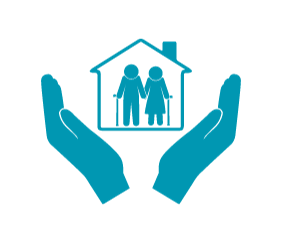As you navigate through the different stages of life, you may find yourself faced with the responsibility of caring for an elderly loved one. But what kind of care does an elderly client truly need? Providing the right level of support for their physical, emotional, and social well-being is crucial. In this article, we will explore the various aspects of care that are essential in ensuring a fulfilling and comfortable life for your elderly client. From addressing their medical needs to promoting social engagement, we will guide you on this rewarding journey of providing the best care possible.

Physical Care
Assistance with daily activities
As an elderly individual, you may require assistance with daily activities such as getting dressed, bathing, and grooming. A caregiver can help you with these tasks, ensuring your comfort and safety while promoting your independence.
Managing medication
Taking medication correctly and at the right time is crucial for your health. A caregiver can assist you in organizing and managing your medications, reminding you to take them, and ensuring you follow your prescribed dosage.
Mobility support
Maintaining mobility is vital to your overall well-being. If you have difficulty walking or moving around, a caregiver can provide assistance, whether it’s using mobility aids like walkers or wheelchairs, providing physical support, or accompanying you on walks.
Monitoring health condition
Keeping track of your health condition is important to prevent any potential issues. A caregiver can help monitor your vital signs, such as blood pressure and pulse, and report any changes or concerns to your healthcare providers promptly.
Emotional Care
Providing companionship
Feelings of loneliness and isolation can negatively impact your mental and emotional well-being. A caregiver can offer companionship, engaging in meaningful conversations and activities to ensure that you have someone to share your moments with.
Reducing loneliness and isolation
Living alone can contribute to feelings of loneliness and isolation. A caregiver can help alleviate these emotions by spending time with you, participating in hobbies or interests, and providing social interaction that promotes a sense of belonging.
Emotional support
Navigating the aging process can be challenging emotionally. A caregiver can provide emotional support, serving as a listening ear, validating your feelings, and offering comfort during difficult times.
Encouraging social activities
Maintaining an active social life is crucial for your mental and emotional well-being. A caregiver can help you participate in social activities, whether it’s attending community events, visiting friends or family, or joining clubs or organizations that align with your interests.
Mental Care
Cognitive stimulation
Keeping your mind active and engaged can help maintain cognitive abilities. A caregiver can provide cognitive stimulation through activities like puzzles, reading, or engaging in stimulating conversations, helping to keep your brain sharp and healthy.
Memory support
Memory loss can be a challenge as you age. A caregiver can assist you with memory support techniques such as creating memory aids, implementing routines, and providing reminders for important tasks and events.
Engagement in meaningful activities
Feeling a sense of purpose and engagement is vital to your mental well-being. A caregiver can help identify activities and hobbies that bring you joy and provide opportunities for you to pursue them, fostering a sense of fulfillment and happiness.
Encouragement for mental wellness
Promoting mental wellness requires a holistic approach. A caregiver can support your mental well-being by encouraging self-care activities, establishing stress management techniques, and promoting a positive environment that nurtures your emotional health.

Nutritional Care
Planning and preparing meals
Maintaining a balanced and nutritious diet is essential for your overall health. A caregiver can assist in planning and preparing meals that meet your dietary needs and preferences, ensuring you receive the necessary nutrients.
Ensuring a balanced diet
Food plays a significant role in maintaining optimal health. A caregiver can help ensure you have a balanced diet by incorporating a variety of food groups, monitoring portion sizes, and encouraging healthy eating habits.
Assisting with feeding
If you face challenges with feeding yourself, a caregiver can provide assistance, ensuring that you receive the necessary nourishment while promoting independence and dignity.
Managing dietary restrictions
If you have dietary restrictions or specific medical conditions that require a specialized diet, a caregiver can help manage and adhere to these restrictions, ensuring your nutritional needs are met while keeping you safe and healthy.
Hygiene Care
Bathing and grooming assistance
Maintaining personal hygiene is essential for your physical well-being and self-esteem. A caregiver can assist you with bathing, ensuring you are clean, comfortable, and safe. They can also provide grooming assistance, helping with activities such as hair care, shaving, and nail care.
Oral and dental care
Maintaining good oral hygiene is crucial for overall health. A caregiver can assist you with oral care, including brushing and flossing, reminding you to use mouthwash, and scheduling dental appointments to ensure your teeth and gums remain healthy.
Toileting and incontinence care
If you require assistance with toileting or have incontinence issues, a caregiver can provide discreet and compassionate support, ensuring your privacy and dignity while maintaining cleanliness and hygiene.
Ensuring personal hygiene
A caregiver can help ensure your personal hygiene needs are met by providing clean clothes, changing bed linens regularly, and maintaining a clean and tidy living environment that promotes your overall well-being.
Medical Care
Communication with healthcare providers
Effective communication with your healthcare providers is crucial for receiving optimal care. A caregiver can assist you in relaying important information, scheduling appointments, and ensuring your questions or concerns are addressed during medical visits.
Scheduling and accompanying to appointments
Attending medical appointments can be overwhelming, especially if you have mobility issues or memory challenges. A caregiver can help schedule and accompany you to appointments, providing support and advocacy during these visits.
Assisting in medical procedures
If you require assistance with medical procedures, a caregiver can provide support and reassurance. They can help with tasks such as wound care, administering medication, or monitoring vital signs under the guidance of healthcare professionals.
Keeping track of medical records
Organizing and maintaining accurate medical records is essential for effective healthcare management. A caregiver can assist in keeping track of medical records, ensuring that important documents, test results, and medication lists are organized and easily accessible.
Safety Care
Fall prevention measures
Falls are a significant concern for the elderly and can result in severe injuries. A caregiver can help implement fall prevention measures, such as removing hazards, installing grab bars, and providing assistance during mobility to reduce the risk of falls.
Home safety modifications
Creating a safe living environment is crucial to prevent accidents or injuries. A caregiver can assist in identifying and implementing necessary home modifications, such as installing handrails, improving lighting, or rearranging furniture to ensure your safety and well-being.
Emergency preparedness
Preparing for emergencies is essential to ensure your immediate well-being and safety. A caregiver can help develop an emergency plan, ensuring you have necessary supplies, contact numbers, and evacuation procedures in place.
Monitoring for signs of abuse or neglect
Unfortunately, elderly individuals can be vulnerable to abuse or neglect. A caregiver can monitor for any signs of mistreatment, ensuring your safety and well-being are protected. They can advocate on your behalf and report any concerns or suspicions of abuse to the appropriate authorities.
Social Care
Facilitating social interactions
Maintaining an active social life is important for your overall well-being and happiness. A caregiver can facilitate social interactions by organizing visits with friends or family, helping you join local senior centers or clubs, or arranging outings to community events.
Helping maintain social networks
Staying connected with loved ones is essential to combat feelings of loneliness and isolation. A caregiver can assist in maintaining your social networks by helping with phone calls, video chats, or sending letters or emails to friends and family members.
Organizing social events
As an elderly individual, you may want to participate in social events or gatherings. A caregiver can help you organize and plan these events, ensuring that they align with your interests and preferences and providing the support necessary for you to fully enjoy the experience.
Participating in community activities
Engaging in community activities not only promotes social interaction but also provides a sense of purpose and belonging. A caregiver can help you explore and participate in local community activities, such as volunteering, attending classes or workshops, or joining hobby groups.
Financial Care
Managing finances and bills
Keeping track of finances and managing bills can become overwhelming as you age. A caregiver can assist in organizing and managing your finances, ensuring bills are paid on time, and helping you maintain financial stability.
Assisting with budgeting
Living on a fixed income may require careful budgeting. A caregiver can help you create and maintain a budget that aligns with your financial resources, ensuring that your expenses are managed effectively.
Applying for benefits or insurance
Maximizing available benefits and insurance coverage is crucial to support your financial well-being. A caregiver can assist in the application process, ensuring that you have access to all eligible benefits and helping you navigate insurance-related matters.
Preventing financial exploitation
Unfortunately, the elderly can be targets of financial exploitation. A caregiver can help protect you from scams, fraud, or financial abuse by providing education, monitoring financial transactions, and raising awareness about potential risks.
End-of-Life Care
Advance care planning
Planning for end-of-life care is a sensitive but essential aspect of ensuring your wishes are respected. A caregiver can assist with advance care planning, helping you make decisions regarding medical interventions, life-sustaining measures, and outlining your preferred care options.
Palliative care
Palliative care focuses on providing relief from pain and symptoms, improving your quality of life, and addressing emotional and spiritual needs. A caregiver can provide support and assistance in obtaining palliative care services, ensuring you receive the best possible care during this challenging time.
Hospice care
Hospice care provides compassionate support, comfort, and dignity for individuals with terminal illnesses. A caregiver can help facilitate the transition to hospice care, ensuring your physical, emotional, and spiritual needs are met, and providing support to your family during this difficult period.
Grief support for the client and family
Coping with the loss of a loved one is a challenging emotional journey. A caregiver can offer grief support and counseling services, providing a compassionate presence, understanding, and guidance during the grieving process for both you and your family.


